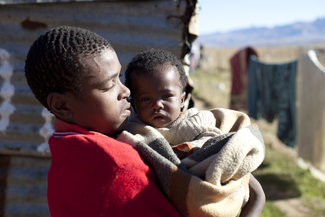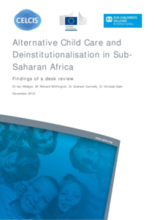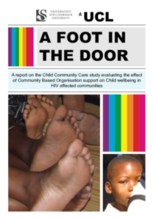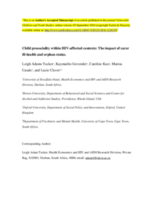

Displaying 301 - 310 of 576
This video is presented by Better Care Network and UNICEF. It features interviews with experts, including members of the Kenya Care Leavers Association explaining some of the negative impacts of institutionalization and highlighting their efforts to support young people who are transitioning out of care.
CRS is looking for a Senior Technical Advisor to lead and provide technical assistance to SARO’s programming for orphans and vulnerable children, and to provide technical leadership and guidance on issues affecting programming for vulnerable children across the Southern African region.
This desk review provides a brief mapping and summary of existing knowledge on alternative care and deinstitutionalisation in Africa.
The Technical Advisor II will work closely with and be based at the Department of Social Welfare to achieve the project objectives, effectively coordinate, manage and monitor and evaluate the case management systems strengthening and child sensitive prevention and response services to violence.
The STA will provide regional leadership in the development and utilization of relevant strategies, guidelines, tools, and learning agendas, and in the documentation and dissemination of best practices.
This report evaluates the efficacy of community based organisations and discusses the need for the evaluation of community based care for children living in HIV communities.
This chapter of Young People Transitioning from Out-of-Home Care reviews the state of South African youth, particularly regarding poverty, employment and education, providing the social context within which to consider those leaving care.
Catholic Relief Services is seeking a Technical Advisor II V to work closely with and be based at the Department of Social Welfare to achieve the project objectives, effectively coordinate, manage and monitor and evaluate the case management systems strengthening and child sensitive prevention and response services to violence.
Catholic Relief Services is seeking a Senior Technical Advisor for OVC/Youth (Southern Africa) to lead and provide technical assistance to SARO’s programming for orphans and vulnerable children, and to provide technical leadership and guidance on issues affecting programming for vulnerable children across the region.
This study focuses on the psychosocial well-being of youth affected by HIV and AIDS.



